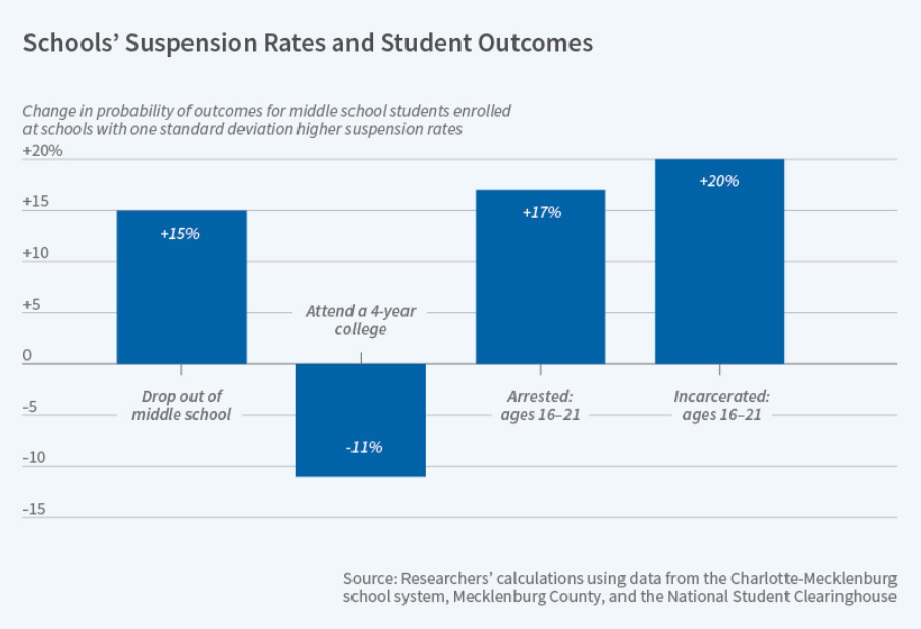A new study released this month by the National Bureau of Economic Research has found that strict disciplinary policies at middle schools are associated with negative later-life outcomes. The study conducted on middle school students from a North Carolina school system found that students who were rezoned to schools with stricter discipline were 17% more likely to be arrested as adults and 20% more likely to be incarcerated. Additionally, they were 15% more likely to drop out of school and 11% less likely to attend a four-year college.
The researchers took advantage of the 2002 court-ordered redrawing of school attendance boundaries in Charlotte-Mecklenburg Schools (CMS) to study how disciplinary policies affect later-life outcomes. (Approximately half of CMS students changed schools.)
To assess how stricter disciplinary policies affected student outcomes, the researchers compared middle school-aged students who lived near each other, previously attended the same schools, and were sent to different schools after the 2002 redrawing of school boundaries. They found that students who were transferred to stricter schools — campuses that had higher suspension rates — were much more likely to be suspended after their transfer than their peers who attended less-strict schools. Students at the stricter schools were 7% more likely to be suspended and were suspended for 16% more days.
Students assigned to stricter schools after the boundary redrawing were more likely to drop out and less likely to attend a four-year college. School disciplinary policies also were associated with future involvement in the adult criminal justice system.
Male minority students were particularly negatively affected by the strict discipline policies. Assignment to a stricter school increased the number of per-year days of suspension by 0.43 days for minority students, an effect twice as large as that for white students. The effects on arrest and incarceration rates were also higher for minority students, especially males.
The effects of stricter disciplinary policies on state test scores were more nuanced. For the full sample of students, the researchers found that stricter disciplinary policies had no effect on state math and reading test scores. They found small, temporary, positive effects on the academic performance of white males; the effects did not lead to higher education attainment or reduced criminality.
The researchers concluded that “it seems unlikely that the gains from removing disruptive peers would outweigh the substantial long-term costs to students who are suspended because of stricter disciplinary policy.”













